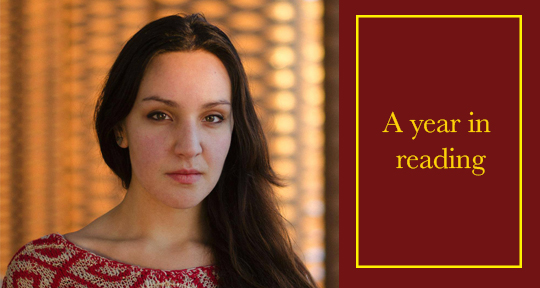Join us this week as our Editors-at-Large bring us updates on fascinating digital archives, literary time capsules, and a prestigious award. From e-lit cult works, to ruminations on the future, to a podcast on Mexican literature, read on to learn more!
MARGENTO, Editor-at-Large, Reporting for Canada
“Why this huge line,” I wondered, “rolling out of the University of Victoria (UVic) McPherson Library?” The bright British Columbia sunlight, the sweet breeze across the greens, not even the irresistible campus café patios could prevent people from crowding in for one of the coolest events of the year.
The “Hypertext & Art” exhibit, hosted by the Digital Humanities Summer Institute (DHSI) from June 10 to June 14, was living up to the reputation and coverage it had already garnered thanks to its exhibition in Rome at Max Planck Institute for Art History in fall 2023 and the indefatigable work done in the field by its well-known and widely awarded curator, author Dene Grigar. The tagline of the exhibit was “A Retrospective of Forms,” and that is exactly what Grigar has been doing for quite a number of years now at the Electronic Literature Lab she leads at Washington State University Vancouver (WSUV), where she archived over three hundred works of electronic literature and other media alongside dozens of vintage computers, software, and peripherals.




